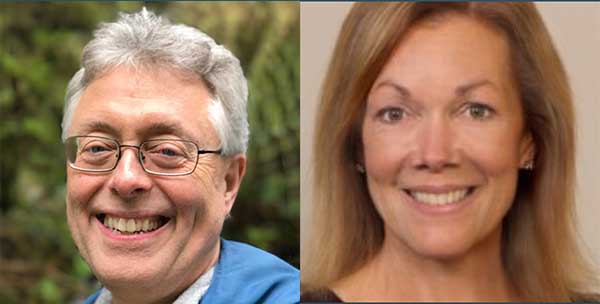Susan Dugan and Bruce Rawles read and talk about “The Ladder of Prayer (S-1.II) from the Song of Prayer supplement to A Course In Miracles – in this YouTube video. As so much of the Course reminds us, our focus – if we want to be consistently peaceful – must consistently return always and only to the mind, and in particular, the decision-making faculty in our mind that chooses against the ego’s separate identity and instead accepts our true eternally shared Identity which is the same for all. For this sustainable serenity, we must inevitably gently release our resistance to the lovingkindness which waits patiently beyond our ego distractions that divert our attention to identification with the issues of the world and its ceaseless barrage of insurmountable problems.
If I’m feeling depressed, angry, sad, or frustrated, I need to re-affirm my dedication to looking – without condemnation – at my ego’s dogged insistence that I’m separate from my Creator, but it’s not my fault, and see that ego’s strategy of projecting the unconscious, unfounded guilt onto everyone and everything else is compromising the peace awaiting us all – including the “me” I think I am when I let go of that misconception. We just need to stop playing ego’s arcade game – alternating role-playing between the victim and the victimizer – battling endless imagined enemies in a desolate desert landscape – a fabulously convincing fantasy, but merely a sophisticated hallucination of staggering proportions. We just need to forgive the dreamer of the dream of separation and leave the desert and end the silly, forgivable game in our minds.
Here are the first three paragraphs of The Ladder of Prayer section:
“1. Prayer has no beginning and no end. ²It is a part of life. ³But it does change in form, and grow with learning until it reaches its formless state, and fuses into total communication with God. ⁴In its asking form it need not, and often does not, make appeal to God, or even involve belief in Him. ⁵At these levels prayer is merely wanting, out of a sense of scarcity and lack.
2. These forms of prayer, or asking-out-of-need, always involve feelings of weakness and inadequacy, and could never be made by a Son of God who knows Who he is. ²No one, then, who is sure of his Identity could pray in these forms. ³Yet it is also true that no one who is uncertain of his Identity can avoid praying in this way. ⁴And prayer is as continual as life. ⁵Everyone prays without ceasing. ⁶Ask and you have received, for you have established what it is you want.
3. It is also possible to reach a higher form of asking-out-of-need, for in this world prayer is reparative, and so it must entail levels of learning. ²Here, the asking may be addressed to God in honest belief, though not yet with understanding. ³A vague and usually unstable sense of identification has generally been reached, but tends to be blurred by a deep-rooted sense of sin. ⁴It is possible at this level to continue to ask for things of this world in various forms, and it is also possible to ask for gifts such as honesty or goodness, and particularly for forgiveness for the many sources of guilt that inevitably underlie any prayer of need. ⁵Without guilt there is no scarcity. ⁶The sinless have no needs.” S-1.II.1:1–3:6
(This video was recorded on January 15, 2021.)
If you have questions or comments about this video, prior videos in this ACIM-related video series or other Course-related topics, please email them via the ACIMblog.com contact form. Susan and Bruce will review and try to respond to questions and suggestions for future conversations. We look forward to extending the conversation with you!
Here are some prior ACIM-related conversations with Susan Dugan and Bruce Rawles.
